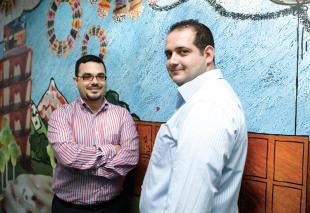

So much for the health food trend

Following the release of damning figures on diabetes by the World Health Organization, the UAE government has implemented a plan to address the spread of the disease; but the region’s chefs must also play a part in helping to change the bad eating habits of a fast-food nation
Last year, the industry talk was all about the rise of health food — but it seems the region’s consumers are not quite as health-conscious as that talk suggested.
The World Health Organization (WHO) estimates that more than 180 million people worldwide currently live with diabetes — 3.5 million of them in the Gulf region.
Topping that regional class is the UAE, with 19.5% of the population sufferers — the second highest rate in the world.
Early this year, the UAE’s Ministry of Health announced a 10-year plan to combat the disease. Launching the strategy at a Ministerial Council for Services press conference in Dubai in January, Sheikh Mansour bin Zayed Al Nahyan, Minister of Presidential Affairs, called for 2009 to be observed as “anti-diabetes” year.
According to Dr Maha Taysir Barakat, medical and research director and consultant endocrinologist at Abu Dhabi’s Imperial College London Diabetes Centre, a “sedentary lifestyle and bad eating habits” such as “an imbalanced diet that is high in fat and sugar” are among the key causes of the disease.
So why is it that in the UAE, a country often hailed as the next big gastronomic hub, the population is eating so badly? Perhaps the problem is the prevalence of restaurants and fast food outlets.
Michelin-starred chef Vineet Bhatia, patron chef of Grosvenor House Dubai’s Indego outlet, commented: “People here in the Arab world eat very badly; in Dubai, Saudi Arabia and Libya I have noted an incredible number of junk food and take-away outlets.”
But this time last year, the region was hailing the health food craze as the region’s next big trend.
Quoted in a Caterer Middle East health food feature last year, The Westin Dubai Mina Seyahi Beach Resort and Marina bar manager Giovanni Depergola said: “Healthy food and beverages are definitely gaining in popularity here, like the rest of the world”.
At the same time, Al Diar Siji Hotel, Fujairah executive sous chef Rogelio Martin Mico commented: “Before, the challenge was merely creating great-tasting, appealing menu items. Now they have to be healthy as well.”
Sheraton Deira Hotel sous chef Seosh Chandran Marakkath pointed out that eating habits could “change in the downturn because people won’t have as much money available”. “But the main thing will still be time constraints, with people working harder than ever,” he noted.
“That is why people choose fast, junk food rather than going for something healthy.”
Roadster Diner brand manager Samer Mouzahe added: “When money is tight, people worry less about whether the food they’re eating is healthy or unhealthy.”
Why chefs should try to make a difference is obvious: firstly, the increased government interest in the population’s diet hints that western-style restrictions on certain ingredients such as sodium may be next on the agenda — or perhaps even US-style nutritional information included on menus.
In addition, chefs that make an effort to integrate healthy food into their menus will be ready for the trend’s return to popularity — which, going by the progression of other global markets, it will undoubtedly do.
But how exactly can they achieve this cost-effectively in the current climate? According to Indego’s Bhatia, going ‘healthy’ does not necessarily entail spending a fortune on imported fresh produce.
“It’s down to us to do simple things like using less oil, butter and fats in our dishes,” he said.
Sheraton’s Marakkath added that including nutritional information on menus worked as a selling point.
“We mention if something is low-fat or sugar-free on the menu itself; people like to see such information,” he commented.
Zaater w Zeit senior brand manager Mahmoud Harb said this was something he would like to see more of.
“I think outlets should put on every meal how many calories are in it, so people can watch their intake and control what we’re eating. I think if that was across the board, people would pay attention,” he said.
This is a practise already in place at US brand Uno Chicago Grill, said vice president of food and beverage Chris Gatto.
“In 2005, we launched a company initiative to make our food better and introduce new foods that would be not only great tasting but also nutritious,” he said.
“Since then we have provided all our nutritional data to the consumer, so they can see what calories, sodium, fat, saturated fat and so on are in the meals.”
Of course, the most chefs can do is provide information so diners can make an informed decision, noted Roadster’s Mouzahem.
“We truly believe that a good balanced diet consists of everything; it’s not just vegetables, or meat, or salad. We promote the idea of everything in moderation,” he said.
Sheraton’s Marakkath added: “I think it would also be valuable for the region’s chefs to put together some kind of campaign to make the public more aware of such things and get them excited about healthier options. If the public demand for something increases then we’ll have more call to put such foods on our menus.”
Dr Maha Taysir Barakat agreed, saying that public awareness was “a must”.
“If all sectors of the community, from the government to restaurants, could play a part, then we will have achieved a powerful community drive,” she noted.